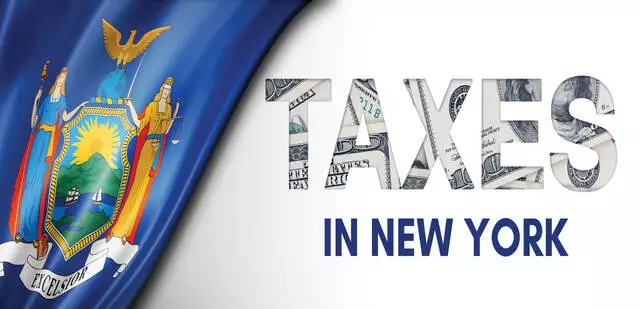
Over the past two weeks the Groundhog did not see his shadow, and there have been a decision, a determination, and two ALJ orders. None of these developments seem particularly noteworthy to me, but you may find something interesting, constant reader.
And now I can forget (for the umpteenth time) how to spell “Punxsutawney” for another year.
Decision
Matter of Charter Communications, Inc., and Combined Affiliates (January 25, 2024); Div’s Rep. David Markey, Esq.; Pet’s Reps. Eric Tresh, Esq. and Jeremy Grove, Esq.; Article 9-A.
Petitioners were a group of corporations headquartered in New York but engaged in business activities in many states. Petitioners are a major provider in the US of high-speed data, digital voice (over VoIP), and cable television services. Petitioners designed and built a fiber-optic broadband network in New York and other states in furtherance of its business activities. It has patents on many of the systems it developed.
Petitioners’ services are delivered via dense wavelength division multiplexing (DWDM) network. DWDM is a data compression process that allows multiple wavelengths of light to be carried on the network simultaneously, which increases the network’s capacity to transport greater amounts of data more quickly across the network to customers.
The Tribunal’s description of Petitioners’ activities made them sound very science-y. It included references to “nodes,” “giga-bytes,” and “a quadrature amplitude modulator.” There was no mention of a flux capacitor; but since it was conceived on November 5, 1955, it probably doesn’t constitute an emerging technology anyway.
The ultimate tax issue to be determined was whether Petitioners constituted a qualified emerging technology company (“QETC”) and thus were entitled to use the reduced tax rate applicable to qualified New York manufacturers (“QNYMs”).
The Tribunal agreed with Petitioners that the statute defining a QETC was a tax imposition statute that must be construed in favor of Petitioners and against the Division. The Tribunal also agreed that QETCs are entitled to use the favorable rate available to QNYMs. It also found “[t]here is no dispute that petitioners use emerging technologies … to provide their services.” But the Tribunal noted the statutory definition of QETC requires that QETCs be “a company located in New York state.” And Petitioners were a group of corporations, some of which were not even doing business in New York. So, the Tribunal found that the corporations not doing business in New York could not be QTECs, and since some of Petitioners’ members could not be QETCs, Petitioners’ combined group could not be a QETC.
The Tribunal’s technical statutory analysis makes sense in a vacuum. But let’s take an extreme case of a combined group of two corporations, one that is doing business primarily in New York and has $1 billion of revenue from QETC-qualified activities and the other which has $100,000 of rental income from real property in Florida and is taxable only in Florida. Would the Legislature really intend that this combined group would not be entitled to QETC status and the benefits flowing from that designation? That seems unlikely.
Determination
Matter of Martin D. Fluder, Jr. (ALJ Behuniak, January 25, 2024); Div’s Rep. Melanie Spaulding, Esq.; Pet’s Rep. Keith Carlson EA; Articles 28 and 29.
The Division proposed to revoke Petitioner’s Certificate of Authority (i.e., his sales tax vendor license) on the basis that he willfully failed to report or pay his sales taxes for several quarters over several years. Even though the Division did not address the issue of willfulness during the videoconference hearing, Judge Behuniak found willfulness based solely on the length of time of Petitioner’s noncompliance and the magnitude of the sales taxes owed. Accordingly, the Judge sustained the notice of proposed revocation of Petitioner’s sales tax certificate.
Orders
Matter of Carlo Seneca (ALJ Behuniak, January 18, 2024); Div’s Rep. Melanie Spaulding, Esq.; Pet’s Rep. Scott Ahroni, Esq.; Articles 28 and 29.
The Judge denied Petitioner’s motion to re-open the record and to reargue the case after a determination had been issued. Petitioner argued he was not a responsible officer of the underlying business at the original hearing. But after he didn’t prevail in that hearing, he dug deep and found a copy of an amended operating agreement that, maybe, showed he was not a responsible officer.
The Judge was having none of it. ALJ determinations are the only opportunity for litigants to establish the factual record for the case, and absent extraordinary circumstances, once the record is closed, it’s closed. And it’s even harder to re-open the record after a determination has been issued. One of the few grounds for re-opening the record post-determination is new evidence which: (1) if introduced into the record, would probably have produced a different result, and (2) which could not have been discovered with the exercise of reasonable diligence in time for introduction at the hearing.
Judge Behuniak found that Petitioner did not establish that the amended operating agreement could not have been found in time for the hearing with the exercise of reasonable diligence. In support of his ruling denying the motion, the Judge noted that Petitioner did not establish in his motion what actions were taken to find the agreement before the hearing had ended, and why the actions that eventually un-earthed the agreement after the determination was made were in excess of what normally would be viewed as reasonable diligence.
Matter of Anthony Piacquadio (ALJ Behuniak, January 18, 2024); Div’s Rep. Melanie Spaulding, Esq.; Pet’s Rep. Scott Ahroni, Esq.; Articles 28 and 29.
This is similar to Matter of Seneca, with a similar result. The Judge denied Petitioner’s motion to re-open the record and to reargue the case after a determination had been issued. Petitioner argued he was not a responsible officer of the underlying business at the original hearing. But after he didn’t prevail in that hearing, he dug deep and found a copy of an amended operating agreement that, maybe, showed he was not a responsible officer.
The Judge was having none of it. ALJ determinations are when the litigants are permitted to establish the factual record for the case, and absent extraordinary circumstances, once the record is closed, it’s closed. And it’s even harder to re-open the record after a determination has been issued. One of the few grounds for re-opening the record is new evidence which: (1) if introduced into the record, would probably have produced a different result, and (2) which could not have been discovered with the exercise of reasonable diligence in time for introduction at the hearing.
Judge Behuniak found that Petitioner did not establish that the amended operating agreement could not have been found in time for the hearing with the exercise of reasonable diligence. In support of his ruling denying the motion, the Judge noted that Petitioner did not establish in his motion what actions were taken to find the agreement before the hearing had ended, and why the actions that eventually un-earthed the agreement after the determination was made were in excess of what normally would be viewed as reasonable diligence.
In addition, Judge Behuniak found that the agreement would not have been conclusive proof that Petitioner was not a member of the LLC that operated the underlying business. Accordingly, the introduction of the agreement probably would not have produced a different result.

